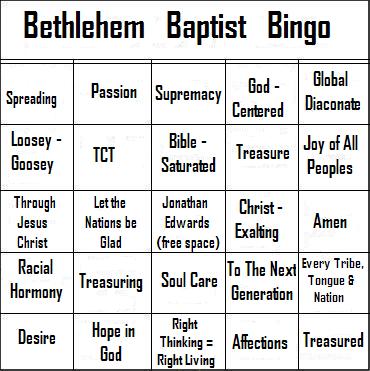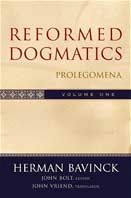Reading: Blog
Entropic Principle on using
Mozilla Thunderbird to implement
GTDListening: Aaron Sprinkle's newest band
Fair. I recommend you

listen to "Carelessness."
Enjoying: Eggo waffles smothered in syrup. mmm...
Here's a short compendium of quotes I've collected from various theologians regarding a dichotomy made in law and gospel. Not all of the authors, nor their quotes, are always using law and gospel in the same terms, nor are they all being equally
scholarly technical. Nevertheless, I'm hoping the reading and cumulative effect has a benefit for you, the reader, and the careful nuances necessary to reading such quotes will be profitable for you.
I should start with a confession. From giants no less than Jonathan Edwards, C. S. Lewis, and Mortimer Adler, I am constantly berated to learn with a pen (or pencil, for the ink-challenged) in my hand. In fact, I recently came across something by Adler (I can't remember where, since I didn't underline it) that emphasized true reading doesn't begin until the reader is interacting, underlining, starring, bulleting, and writing questions in the margin to the author. Well, a brief perusal in my library shows that nearly all my books are still in pristine, un-marked form (except for the random grape juice stain or char/ash, that is). So I confess, despite having the message shoved down my throat, it hasn't yet stuck. You can almost guarantee to find me reading empty-handed.
However, one way in which I made up for this is my
Resolved file. It is nothing but a simple Word (.doc) file that I constantly keep on my desktop, and whenever I run into an exceptional (or topical) quote I copy and paste (or type it out) into this file. Its been through several revisions, and actually comprises of four different .doc files that have started (on their own?) through the years. The reason for its title is due to the fact that the first entry I placed on it was Jonathan Edwards'
Resolutions. The first word to each of these is, of course, "Resolved, to never..." or "Resolved, every time I...," etc. When I went to save it, MS Word offers as a title the first word(s) of your document. "Resolved" seemed like a good choice, though there is little in directives to myself and more in the line of random quotes. I keep a copy on my Hp iPAQ h5555 and sync it with the desktop when needed.
So without further ado, on to the quotes.
John Calvin (1509-64)
Hence, also, we see the error of those who, in comparing the Law with the Gospel, represent it merely as a comparison between the merit of works, and the gratuitous imputation of righteousness.
This is indeed a contrast not at all to be rejected. For Paul often means by
the term "law" the rule of righteous living by which God requires of us what
is his own, giving us no hope of life unless we completely obey him, and
adding on the other hand a curse if we deviate even in the slightest degree.
This Paul does when he contends that we pleasing to God through grace and
accounted righteous through his pardon, because nowhere is found that
observance of the law for which the reward has been promised. Paul therefore
justly makes contraries of the righteousness of the law and that of the
gospel (*Institutes of the Christian Religion*, 1559; 2.9.4).
This is confirmed by the testimony of Paul, when he observes
that the Gospel holds forth salvation to us, not under the harsh arduous,
and impossible terms on which the Law treats with us, (namely, that those
shall obtain it who fulfill all its demands,) but on terms easy,
expeditious, and readily obtained (*Institutes*, 2.5.12).
But they observe not that in the antithesis between Legal and
Gospel righteousness, which Paul elsewhere introduces, all kinds of works,
with whatever name adorned, are excluded, (Galatians 3:11, 12. For he says
that the righteousness of the Law consists in obtaining salvation by doing
what the Law requires, but that the righteousness of faith consists in
believing that Christ died and rose again, (Romans 10:5-9.) Moreover, we
shall afterwards see, at the proper place, that the blessings of
sanctification and justification, which we derive from Christ, are
different. Hence it follows, that not even spiritual works are taken into
account when the power of justifying is ascribed to faith (*Institutes*,
3.11.14).
The Law, he says, is different from faith. Why? Because to
obtain justification by it, works are required; and hence it follows, that
to obtain justification by the Gospel they are not required. From this
statement, it appears that those who are justified by faith are justified
independent of, nay, in the absence of he merit of works, because faith
receives that righteousness which the Gospel bestows. But the Gospel differs
from the Law in this, that it does not confine justification to works, but
places it entirely in the mercy of God (*Institutes*, 3.11.18).
John Calvin For the words of Paul always hold true, that the difference
between the Law and the Gospel lies in this, that the latter does not like
the former promise life under the condition of works, but from faith. What
can be clearer than the antithesis — "The righteousness of the law is in
this wise, The man who doeth these things shall live in them. But the
righteousness which is of faith speaketh thus, Whoso believeth," etc. (
Romans 10:5.) To the same effect is this other passage, "If the inheritance
were of the law, faith would be made void and the promise abolished.
Therefore it is of faith that in respect of grace the promise might be sure
to every one that believeth." ( Romans 4:14.) As to ecclesiastical laws,
they must themselves see to them: we acknowledge one Legislator, to whom it
belongs to deliver the rule of life, as from him we have life (*Antidote to
the Council of Trent*, 1547).
I besides hold that it is without us, because we are
righteous in Christ only. Let them produce evidence from Scripture, if they
have any, to convince us of their doctrine. I, while I have the whole
Scripture supporting me, will now be satisfied with this one reason, viz.,
that when mention is made of the righteousness of works, the law and the
gospel place it in the perfect obedience of the law; and as that nowhere
appears, they leave us no alternative but to flee to Christ alone, that we
may be regarded as righteous in him, not being so in ourselves. Will they
produce to us one passage which declares that begun newness of life is
approved by God as righteousness either in whole or in part? But if they are
devoid of authority, why may we not be permitted to repudiate the figment of
partial justification which they here obtrude? (*Antidote to the Council of
Trent*, 1547).
Zacharias Ursinus (1534-83)
Q.36 What distinguishes law and gospel?
A:*The law contains a covenant of nature begun by God with
men in creation, that is, it is a natural sign to men, and it requires of us perfect
obedience toward God. It promises eternal life to those keeping it, and
threatens eternal punishment to those not keeping it. In fact, the gospel
contains a covenant of grace, that is, one known not at all under nature.
This covenant declares to us fulfillment of its righteousness in Christ,
which the law requires, and our restoration through Christ's Spirit. To
those who believe in him, it freely promises eternal life for Christ's sake
(*Larger Catechism*, Q. 36).
In What Does The Law Differ From The Gospel?
The exposition of this question is necessary for a variety of considerations,
and especially that we may have a proper understanding of the law and the
gospel, to which a knowledge of that in which they differ greatly
contributes. According to the definition of the law, which says, that it
promises rewards to those who render perfect obedience; and that it promises
them freely, inasmuch as no obedience can be meritorious in the sight of
God, it would seem that it does not differ from the gospel, which also
promises eternal life freely. Yet notwithstanding this seeming agreement,
there is a great difference between the law and the gospel. They differ, 1.
As to the mode of revelation peculiar to each. The law is known naturally:
the gospel was divinely revealed after the fall of man. 2. In matter or
doctrine. The law declares the justice of God separately considered: the
gospel declares it in connection with his mercy. The law teaches what we
ought to be in order that we may be saved: the gospel teaches in addition to
this, how we may become such as this law requires, viz: by faith in Christ.
3. In their conditions or promises. The law promises eternal life and all
good things upon the condition of our own and perfect righteousness, and of
obedience in us: the gospel promises the same blessings upon the condition
that we exercise faith in Christ, by which we embrace the obedience which
another, even Christ, has performed in our behalf; or the gospel teaches
that we are justified freely by faith in Christ. With this faith is also
connected, as by an indissoluble bond, the condition of new obedience. 4. In
their effects. The law works wrath, and is the ministration of death: the
gospel is the ministration of life and of the Spirit (Rom. 4:15, 2 Cor. 3:7)
(*Commentary on the Heidelberg Catechism*, Q. 92).
Caspar Olevian (1536-87) For this reason the distinction between law and
Gospel is retained. The law does not promise freely, but under the condition
that you keep it completely. And if someone should transgress it once, the
law or legal covenant does not have the promise of the remission of sins. On
the other hand, the Gospel promises freely the remission of sins and life,
not if we keep the law, but for the sake of the Son of God, through faith (*Ad
Romanos Notae*, 148; Geneva, 1579).
Theodore Beza (1534-1605) We divide this Word into two principal parts
or kinds: the one is called the 'Law,' the other the 'Gospel.' For all the
rest can be gathered under the one or other of these twoheadings...Ignorance of this distinction between Law and Gospel is one of the principal sources of the abuses which corrupted and still corrupt Christianity (*The Christian Faith*, 1558)
William Perkins (1558-1602) The basic principle in application is to know
whether the passage is a statement of the law or of the gospel. For when the
Word is preached, the law and the gospel operate differently. The law
exposes the disease of sin, and as a side-effect, stimulates and stirs it
up. But it provides no remedy for it. However the gospel not only teaches us
what is to be done, it also has the power of the Holy Spirit joined to
it....A statement of the law indicates the need for a perfect inherent
righteousness, of eternal life given through the works of the law, of the
sins which are contrary to the law and of the curse that is due them.... By
contrast, a statement of the gospel speaks of Christ and his benefits, and
of faith being fruitful in good works (*The Art of Prophesying*, 1592, repr.
Banner of Truth Trust,1996, 54-55).
Edward Fisher (c.1601-1655) Now, the law is a doctrine partly known by
nature, teaching us that there is a God, and what God is, and what he
requires us to do, binding all reasonable creatures to perfect obedience,
both internal and external, promising the favour of God, and everlasting
life to all those who yield perfect obedience thereunto, and denouncing the
curse of God and everlasting damnation to all those who are not perfectly
correspondent thereunto. But the gospel is a doctrine revealed from heaven
by the Son of God, presently after the fall of mankind into sin and death,
and afterwards manifested more clearly and fully to the patriarchs and
prophets, to the evangelists and apostles, and by them spread abroad to
others; wherein freedom from sin, from the curse of the law, the wrath of
God, death, and hell, is freely promised for Christ's sake unto all who
truly believe on his name (*The Marrow of Modern Divinity*; 1645, repr.
1978, 337-38. NB: The author of the *Marrow* was designated only as E.F.
Therefore some scholars doubt whether Edward Fisher was actually the
author).
William Twisse (1578-1646) How many ways does the Word of God teach us to
come to the Kingdom of heaven?* *Two. Which are they? The Law and the
Gospel. What says the Law? Do this and live. What says the Gospel? Believe
in Jesus Christ and you shall be saved. Can we come to the Kingdom of God by
the way of God's Law? No.Why so? Because we cannot do it. Why can we not do
it? Because we are all born in sin. What is it to be none in sin? To be
naturally prone to evil and ...that that which is good. How did it come to
pass that we are all borne in sin? By reason of our first father Adam. Which
way then do you hope to come tot he Kingdom of Heaven? By the Gospel? What
is the Gospel? The glad tidings of salvation by Jesus Christ. To whom is the
glad tidings brought: to the righteousness? No. Why so? For two reasons.
What is the first? Because there is none that is righteous and sin not. What
is the other reason? Because if we were righteous, i.e., without sin we
should have no need of Christ Jesus. To whom then is this glad tiding
brought? To sinners. What, to all sinners? To whom then? To such as believe
and repent. This is the first lesson, to know the right way to the Kingdom
of Heaven.: and this consists in knowing the difference between the Law and
the Gospel. What does the Law require? That we should be without sin. What
does the Gospel require? That we should confess our sins, amend our lives,
and then through faith in Christ we shall be saved. The Law requires what?
Perfect obedience. The Gospel what? Faith and true repentance. (*A Brief
Catechetical Exposition of Christian Doctrine*, 1633).
J.C. Ryle (1816-1900) To be unable to see any difference between law and
gospel, truth an error, Protestantism and Popery, the doctrine of Christ and
the doctrine of man, is a sure proof that we are yet dead in heart, and need
conversion. (*Expository Thoughts on John*, 2:198-199).
J. Gresham Machen (1881-1937) A new and more powerful proclamation of law
is perhaps the most pressing need of the hour; men would have little
difficulty with the gospel if they had only learned the lesson of the law.
As it is, they are turning aside from the Christian pathway; they are
turning to the village of Morality, and to the house of Mr. Legality, who is
reported to be very skillful in relieving men of their burdens... 'Making
Christ Master' in the life, putting into practice 'the principles of Christ'
by one's own efforts-these are merely new ways of earning salvation by one's
obedience to God's commands (*What Is Faith?*, 1925).
Louis Berkhof (1873-1957) The Churches of the Reformation from the very
beginning distinguished between the law and the gospel as the two parts of
the Word of God as a means of grace. This distinction was not understood to
be identical with that between the Old and the New Testament, but was
regarded as a distinction that applies to both Testaments. There is law and
gospel in the Old Testament, and there is law and gospel in the New. The law
comprises everything in Scripture which is a revelation of God's will in the
form of command or prohibition, while the gospel embraces everything,whether
it be in the Old Testament or in the New, that pertains to the work of
reconciliation and that proclaims the seeking and redeeming love o God in
Christ Jesus (*Systematic Theology*, [Grand Rapids, 4th edn. 1941], 612).
John Murray (1898-1975) ...the purity and integrity of the gospel
stands or falls with the absoluteness of the antithesis between the function
and potency of law, one the one hand, and the function and potency of grace,
on the other (*Principles of Conduct: Aspects of Biblical Ethics* [Grand
Rapids: Eerdmans, 1957], 186).
For more, please visit Dr. R. Scott Clark's personal website. These quotes were taken from here.
Labels: theology
























































